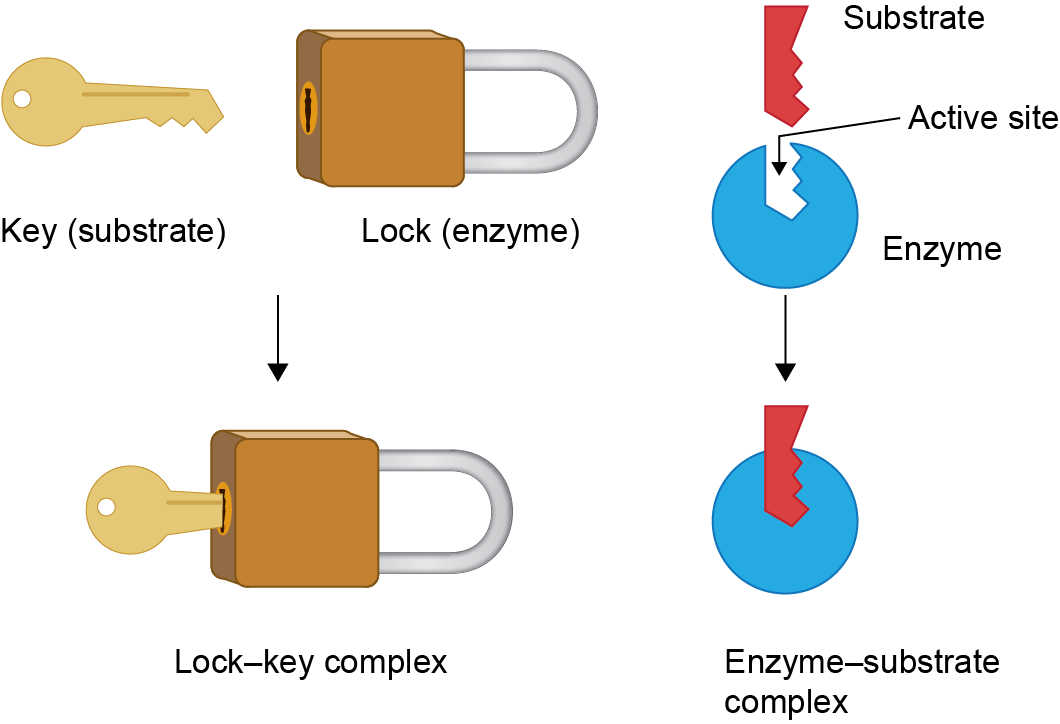Biologics
7. Example - Enzymes
Enzymes are a class of protein that catalyse biological
reactions (i.e. they increase the rate at which biological reactions take place). Enzymes catalyse a wide variety of reactions in the body, including those important for digestion (to break down food and to absorb nutrients) and metabolism
(to maintain and build new cells).
In enzymatic reactions, starting molecules (substrates) are converted into the desired product. Enzymes can catalyse specific reactions by interacting with specific substrates – the so-called ‘lock and key’ hypothesis (Figure 2).

Figure 2. The lock and key hypothesis of enzyme–substrate binding. The shape of the substrate allows it to fit perfectly into the active site of the enzyme, where the enzymatic reaction will take place.
Enzyme dietary supplements are not classical biologic medicines. They are taken as tablets, and instead of being synthesised in the laboratory, they can be extracted directly from animal tissues and purified. Other therapeutic enzymes, however, are developed and manufactured in the same way as other biologic medicines and are administered by injection.
Some diseases (such as Haemophilia, Pompe, Gaucher) are caused by the inability of the body to produce enough of a particular enzyme. Therefore, enzyme therapy is given to restore the amount of enzyme to normal levels.